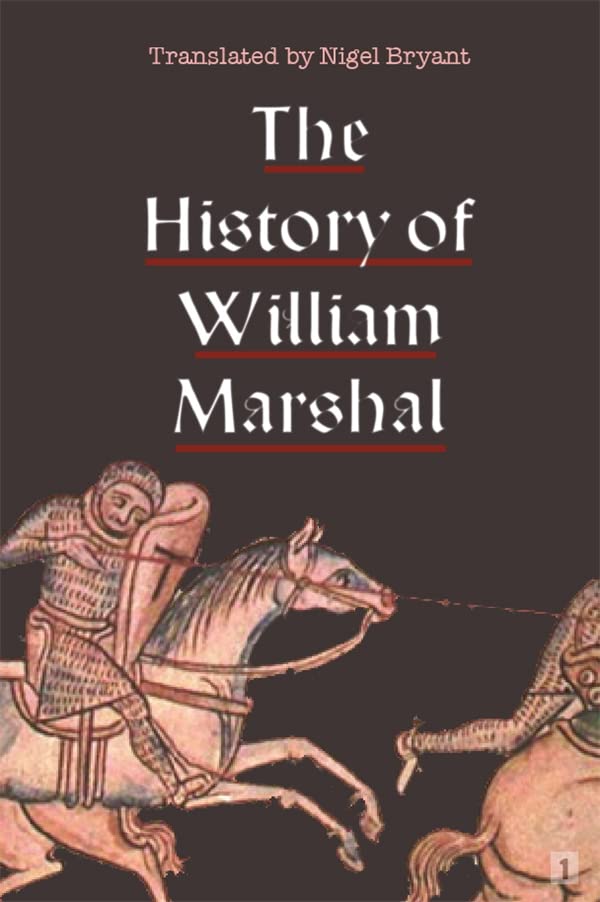

History of William Marshal
N**K
A failure of history
This is a terrible translation of a wonderful source. Perhaps the most problematic, and indeed mind boggling, part of the translation is why did Bryant put it into a prose format? What makes the History so brilliant, so captivating, was that it was a verse poem. By putting it into prose, you lose that special part of the source. Indeed, it alters how the work should be understood, and how it should be read. The fact Bryant does not even attempt to offer an explanation is ridiculous. He also appears to have translated the source in a way which reflects his own prejudices - he does not believe that the author of the work is John of Earley, Marshal's banneret, a point which is admittedly contentious. Yet, he seems to have translated the source in a way which supports his view, instead of being true to the source material. His introduction is, at the very least, a failure to understand the source, its patron, and its hero. While it is true, as Bryant argues, that we should not be too cynical when dealing with the source, it is utterly wrong to assume that everything the work says is akin to gospel. Medieval texts - which Bryant should be aware of - are known for their exaggerations yet Bryant does not seem to understand this. In his interest in the source, he is too uncritical of the History and therefore comes to some incredibly poor conclusions. Even if the poem does not say he was, it is without a doubt that Marshal was a politically conniving magnate, as all men in his position were. You did not get anywhere in the medieval world without some political intrigue. Bryant's introduction comes across as someone who did this as a crash grab, and someone who neither understands the source, the period, nor anything about medieval history or its texts in general. Avoid at all costs if you're looking to buy this book for academic/scholarly reasons; it's not even a cheap alternative due to the prose format. If you can, sell an organ for the Anglo-Norman Text Society editions of the History, which are of a much higher quality. This is only good for casual readers who may want an insight - however corrupted by Bryant's inability to criticise the source - into the life of this interesting figure.
J**S
Important history book
Very useful reference book
R**L
Fascinating man, William Marshal ...
This was an excellent read, full of facts and information about a man who should have a prominent place in English history and yet remains an unknown. What he did for England was on a parallel with Winston Churchill. The two men in English history who saved England from certain invasion.
A**.
A must read for anyone interested in medieval history
A very readable and often entertaining hagiography of the most famous 12th century knight buried in Temple Church, London. You’ll end up loving the incredible life of this man, even if the the world he belonged to is indeed a foreign country.
A**R
Good, clearly written and accessible.
A good edition, especially for teaching undergraduates. Affordable with current university budgets. I also own the earlier Anglo-Norman text edition, which remains the gold standard, but which is a bit pricier.
A**R
Second Best
Bryant's translation of the History of William Marshal is a worthy endeavour, and it brings a version of the text to a wide audience at an affordable price without the academic apparatus that puts off the general reader. Bryant is not an academic, but an enthusiast. The result shows this. He does not disguise the fact that his translation was preceded by the monumental and authoritative 3 volume edition of the Anglo-Norman Text Society published in 2002-7 and very difficult to get hold of outside of major libraries. Bryant's translation is a reflection perhaps of the frustration that Marshal devotees have experienced by the failure of ANTS to bring the text to a wider audience. What Bryant does fail to acknowledge - which would be very bad manners in an academic - is how much of the rather skimpy editorial material he offers is derived from the ANTS edition, nor does he warn the reader how complicated a text it really is. But he's an enthusiast and his translation is out to project a William Marshal who's a knight and warrior the way the early 20th century looked at him, and the somewhat antiquated and uninformed choices he makes in the terms he translates reinforces this. He's not a historian and is not interested in the numerous studies that have revealed Marshal as a complicated character who made hard choices in difficult times, most of them self-interested. It's the military Marshal he prefers, the uncomplicated, loyal and talented warrior the biographer was out to portray. Bryant is happy to conspire with him in his propaganda.
Trustpilot
4 days ago
5 days ago